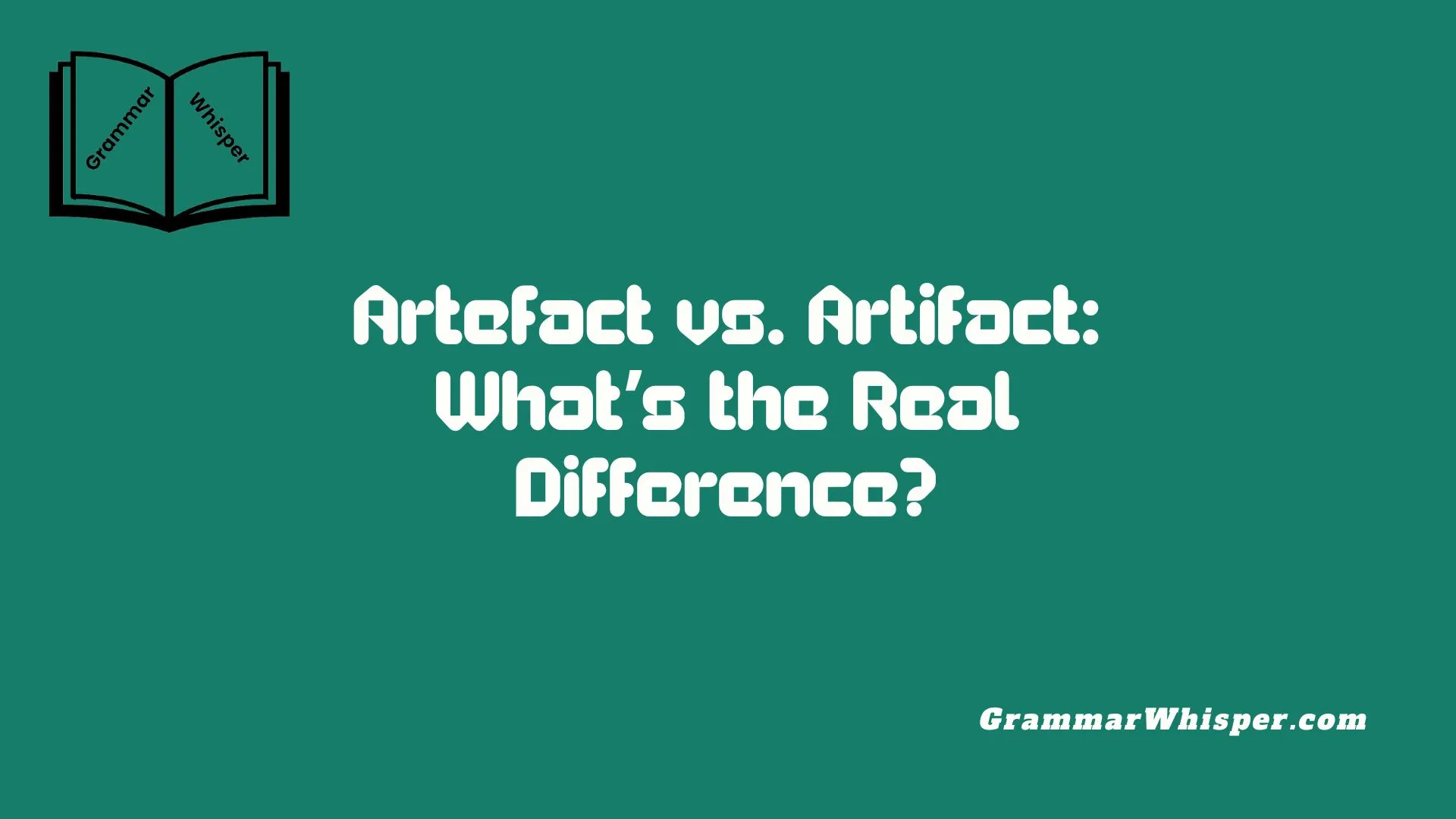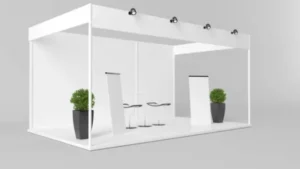As a writer working across borders, I’ve seen how the words Artefact vs. Artifact can quietly shift the entire tone of your content. Their spelling isn’t just a cosmetic tweak – it reflects deeper layers of geography, history, and style. For instance, the British prefer artefact, while Americans use artifact, and that subtle difference can affect credibility, especially in professional or academic spaces. These terms carry shared meanings, yet the version you choose depends largely on your audience’s expectations, influenced by their cultural and linguistic patterns. In writing, those choices build trust and demonstrate awareness of regional knowledge.
If you’re an educator, student, or digital guide, mastering this distinction strengthens your communication. These spelling variants come from different origins and follow distinct guidelines, shaped by centuries of language evolution. I often draw from actual examples in my work to pick the right word based on my global audience and the technical context. Understanding usage isn’t just about following rules – it’s about connecting clearly with your audience, wherever they are.
What’s the Difference Between Artefact and Artifact?
At first glance, the words seem identical in meaning. And they are – but only in definition, not spelling. The key distinction lies in regional language preferences.
| Term | Region | Definition |
| Artefact | UK, Australia, Canada (British English) | An object made by humans, often of historical or cultural interest. |
| Artifact | USA (American English) | Same meaning, but preferred American English spelling. |
Both terms refer to man-made objects from the past, often found in archaeological or historical contexts. Yet, spelling it “wrong” for your audience can affect credibility – especially in academic, technical, or public communication.
The Etymology Behind the Words
The word artifact/artefact traces back to the Latin phrase arte factum, meaning “something made with skill.”
- “Arte” = by or with art
- “Factum” = something made or done
Over time, this Latin root passed into various European languages, eventually landing in English. As British and American English evolved, the spelling split emerged, not due to different meanings, but due to standardization efforts.
The British Perspective: Why “Artefact” Still Rules
In the UK and countries influenced by British English, artefact is the accepted spelling. This isn’t accidental – it’s driven by tradition, usage in major institutions, and educational norms.
Common Usage in the UK
- British Museums: The British Museum uses artefact exclusively in its exhibits and online content.
- Academia: UK universities and research papers published in British journals follow the artefact standard.
- Media: Outlets like the BBC, The Guardian, and The Times use artefact in news stories and features.
“The artefacts discovered in the Scottish Highlands revealed ancient Celtic rituals previously undocumented.” – The Guardian, 2023
Where Else Is “Artefact” Used?
- Australia
- New Zealand
- South Africa
- Ireland
- India (in some academic and formal writing)
Real-World Example
Case Study: The Australian National Museum Their official documentation consistently uses “artefact,” aligning with both educational systems and international visitors accustomed to British English.
The American Take: Simplicity Wins with “Artifact”
In the United States, “artifact” is the only accepted spelling in formal contexts. This preference stems largely from the spelling reforms led by Noah Webster in the 19th century.
Webster’s Influence on American Spelling
Webster aimed to simplify English spelling to make it more phonetic. Other examples include:
- Colour → Color
- Honour → Honor
- Theatre → Theater
In the case of artefact, the e was dropped, making it “artifact.”
Where “Artifact” Dominates
- Smithsonian Institution
- American universities (Harvard, Yale, etc.)
- U.S. government publications
- Scientific journals and textbooks
Real-World Usage
“The artifact found near the Ohio River was dated to 1200 BCE, indicating complex indigenous trade networks.” – Smithsonian Magazine, 2024
Global Usage: A Spelling Map
| Region | Preferred Spelling | Notes |
| United States | Artifact | Universally used in media, education, and academia |
| United Kingdom | Artefact | Standard across institutions, media, and education |
| Australia | Artefact | Follows British spelling conventions |
| Canada | Both | Artefact in government and academia, Artifact in tech |
| India | Both | Often depends on publication or academic affiliation |
In Archaeology and Beyond: Usage in Context
While both words originate in historical and archaeological contexts, their modern usage has expanded. Here’s how each is used today:
Archaeological Examples
- “Artefact”: Used in excavation reports in the UK, describing tools, pottery, or weapons.
- “Artifact”: Common in American museum displays, especially in indigenous and colonial exhibits.
In Technology
Interestingly, both spellings have found a second life in software engineering. In project management and DevOps, the term artifact/artefact refers to by-products of the development process, such as:
- Build files
- Documentation
- Versioned software outputs
| Field | Common Usage | Example |
| Software Development | Artifact (US default) | “Generated build artifacts” |
| Engineering Docs | Either, depending on org | “Deployment artefacts” |
Usage Trends: What the Data Tells Us
A deep dive into the Google Ngram Viewer and COCA (Corpus of Contemporary American English) reveals the following:
- “Artifact” appears more than 10x as frequently in U.S.-based publications.
- “Artefact” dominates in UK, Australian, and Commonwealth publications.
- Global web search volume: artifact is searched ~40,000/month; artefact ~8,000/month.
Which Style Guide Should You Follow?
Understanding what major style guides recommend can help you write with confidence:
| Style Guide | Region | Preferred Spelling |
| APA (American) | US | Artifact |
| MLA | US | Artifact |
| Chicago Manual | US | Artifact |
| Oxford Style Manual | UK | Artefact |
| Cambridge Style Guide | UK | Artefact |
Tip: When writing for a global audience, pick a single style and remain consistent throughout.
When Does Spelling Really Matter?
Consistency and credibility are key – especially in professional, academic, and digital publishing settings.
Examples Where Spelling Choice Impacts Credibility:
- Academic Papers: UK universities may reject papers using “artifact” unless justified.
- SEO and Online Publishing: A British site may rank lower for “artefact” if content inconsistently uses “artifact.”
- Collaborative Projects: Teams across regions need a unified style guide to avoid confusion in naming files, especially in tech or research.
Practical Takeaways: Which to Use and When
Here’s a quick-reference guide to help you make the right call:
| Audience Location | Recommended Spelling |
| US-based readers | Artifact |
| UK/Commonwealth | Artefact |
| Global tech team | Pick one and document it |
| Academic writing | Follow the institution’s guide |
| SEO/Web content | Use keyword tools to check regional trends |
Quick Summary Table
| Feature | Artefact | Artifact |
| Region | UK/Commonwealth | USA |
| Common in | History, academia | Tech, museums, academia |
| Style guides | Oxford, Cambridge | APA, MLA, Chicago |
| SEO volume | Lower | Higher |
| Preferred by | British writers | American writers |
Final Thoughts
Both artefact and artifact are correct – but correctness depends on context. The important part is knowing your audience, choosing the appropriate regional variant, and being consistent throughout your content.
In the world of global communication, where your writing can be read in Sydney or Seattle, using the “right” version can enhance clarity, build trust, and boost your professional credibility.
FAQs
What does “artefact” mean?
Artefact refers to an object made by humans, typically of historical or cultural significance. It’s the preferred spelling in British English and is commonly used in contexts like archaeology, museums, education, and historical research across the UK, Australia, and other Commonwealth countries.
Is “artifact” wrong in British English?
Not necessarily wrong, but less preferred. British English style guides and institutions overwhelmingly favor artefact. Using artifact in UK publications or academic papers may be marked as an Americanism unless intentionally used for a U.S. context.
Can I use both spellings interchangeably?
Technically, yes – both words refer to the same thing. But consistency is critical. Choose one spelling based on your audience or the regional style you’re following, and stick with it throughout your writing to maintain professionalism and clarity.
How does spelling affect SEO for “artefact” vs “artifact”?
Search engines recognize both spellings, but “artifact” has higher search volume globally, especially in American markets. If you’re targeting British or Commonwealth audiences, “artefact” may be more relevant. Always conduct keyword research before choosing your primary spelling for digital content.











